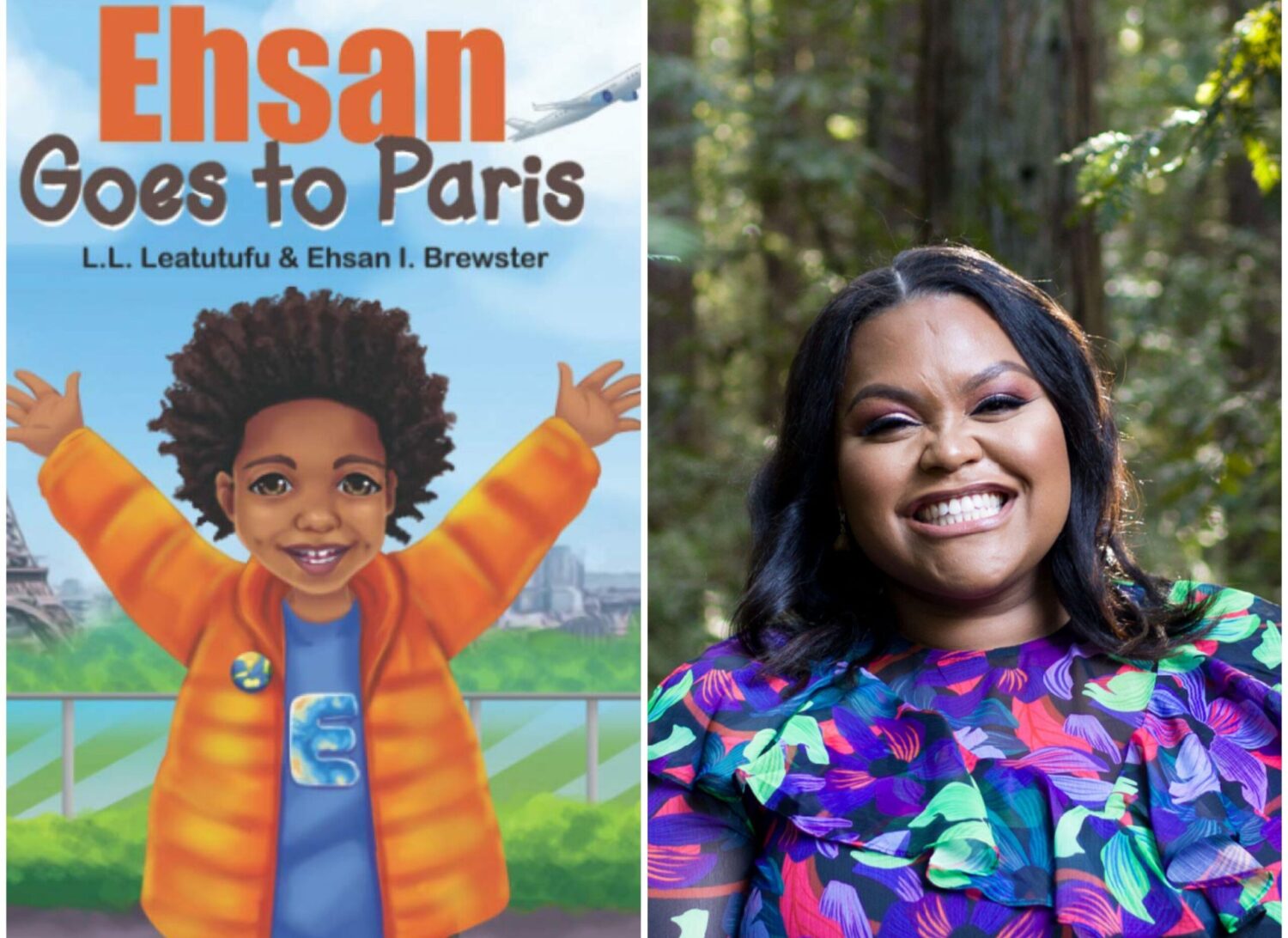Ehsan Goes to Paris Celebrates Black Characters Enjoying the World

Laneka Leatutufu is a mother, juvenile probation officer and first-time author of Ehsan Goes to Paris, a children’s travel book that was created to celebrate and represent children of color as well as foster the imagination of children who desire to explore the world.
The inspiration for the book came after Leatutufu and her partner, affectionately known as her “Honey,” took their son Ehsan to France for his first birthday. The 35-year-old mother initially wanted the book to memorialize their trip, but during the process, that idea slowly changed.
Four-year-old Ehsan is the co-author and main protagonist of the book. In Ehsan Goes to Paris, Leatutufu wanted to celebrate him and his name. She explains how there is a tendency for European names to be standard, whereas Black and Indigeous people whose names aren’t white may be ostracized and receive name-based microaggressions.
“In my book, there is a piece in my dedication where I say, ‘Make sure they pronounce your name right…’” Leatutufu said in an interview with Hey, Black Mom! “It’s important to make sure people make the effort to pronounce your name and not just opt to ascribe you a nickname. Own your name. Your name is your identity. So make sure they put respect on your name.”

Representation and identity is important for Leatutufu. Imagery and stories of Black males as the main protagonist should be normalized. When her son and other Black and brown males read her book, she wants them to be able to visualize different and greater realities for themselves.
“I wrote this book with my son in mind, but also for all the youth that I have worked with and youth in urban cities across the world that have never left out of their blocks.”
Taking them with you
In San Francisco’s North Beach projects where she grew up, anytime Leatutufu and her close relatives would visit amusement parks or different states, kids from the neighborhood often expressed their curiosity and desire to go.
“I remember feeling bad that they couldn’t all come with us. I feel like my book was published with them in mind too,” Leatutufu said. “I may not be able to physically take every child on a trip but they can visit places with me through my books and my hope is that it inspires them to want to venture out to see, explore, try new cuisines or learn a new language.”
In the travel industry, Leatutufu notices a lack of racial diversity and inclusion. She saw that there wasn’t enough imagery of Black families traveling, exploring and enjoying the riches of life in mainstream media.
“I cannot think of any travel adventure books with a Black male protagonist having fun and traveling around the world,” Leatutufu said. “I have not seen any mainstream children’s books with a Black male protagonist traveling abroad.”
The term Post Traumatic Slave Syndrome (PTSS) describes the multigenerational trauma and injustices experienced by African-Amercans. PTSS has similarities to post-traumatic stress disorder (PTSD), including avoiding certain places, people, or activities and events that may remind the individual of the trauma. As a probation officer, Leatutufu has witnessed the effects that negative environments and PTSS have on the youth.
She has worked with youth and families who have experienced a level of trauma, such as those who live in neighborhoods filled with victimization, police brutality, gangs, drug paraphernalia, homelessness, lack of positive role models, lack of parental guidance and adequate supervision, abandonment, lack of resources or safe places, poverty, incarceration, sexual exploitation, broken homes, sexual/physical/verbal abuse, toxic relationships, alcohol/drug addiction, unemployment, crime, shootings and killings.
“From my experience with talking to some youth and adults, a lot of times they cannot see beyond struggle and survival and adapt to what they feel is their only reality,” Leatutufu said.
“Negative conditions can really shape their perception of what they believe is possible for their lives.”
Many of the youth she’s worked with are in survival mode and only know hopelessness and despair.
With her book, Leatutufu wants to be a part of changing the narrative and adding positive stories of Black and brown people, specifically Black male youth. She invites anyone to read her and Eshan’s book and to show them a world outside of their neighborhood, celebrating Black families, Black love, Black children and Black men and women in a positive light.
Ehsan goes to Paris is available on Amazon. Leatutufu and Ehsan also have a traveling coloring book that is due to be released this year.
